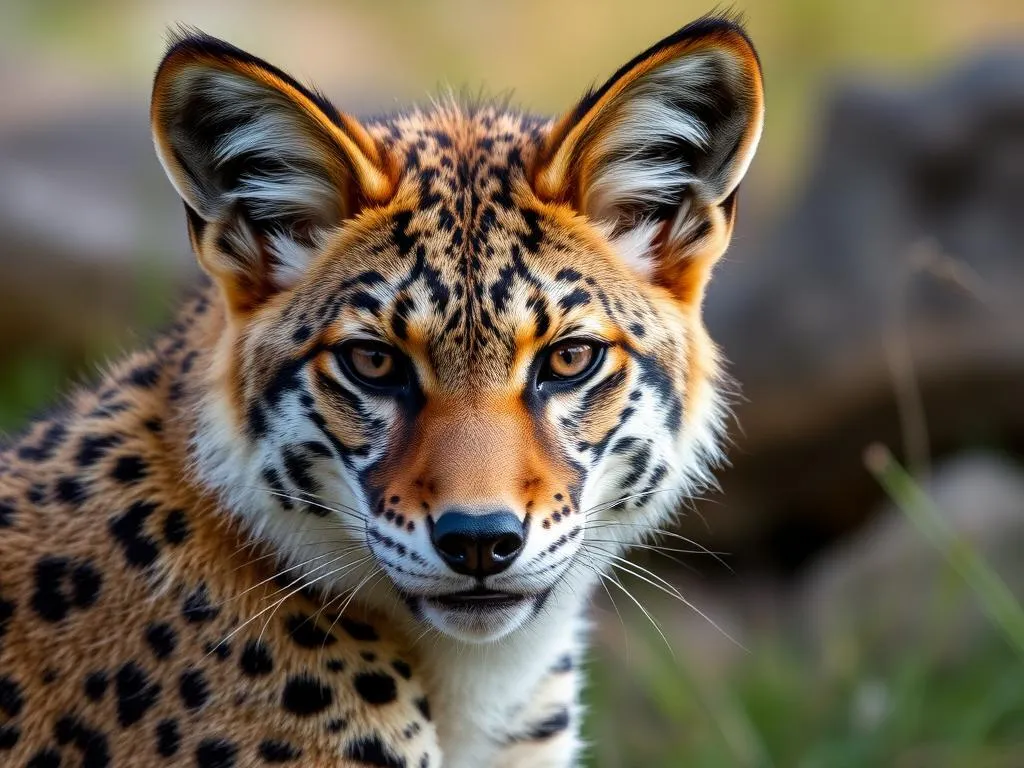
Jackals are fascinating creatures that have intrigued many with their wolf-like appearance and cunning behavior. These wild canids belong to the genus Canis, which also includes domestic dogs and wolves. But can you keep a jackal as a pet? This question may arise for animal lovers and exotic pet enthusiasts alike. In this post, we will delve into the characteristics of jackals, their care requirements, legal considerations, and the ethical implications of keeping such a wild animal.
Understanding Jackals
Species Overview
There are several species of jackals, each with unique traits and habitats. The Golden Jackal (Canis aureus) is the most widespread, found in parts of Africa, Southeast Europe, and South Asia. The Black-Backed Jackal (Canis mesomelas) is native to southern Africa, while the Side-Striped Jackal (Canis adustus) prefers the wooded regions of central and southern Africa. Each species plays a crucial role in their respective ecosystems, primarily as scavengers and hunters.
Behavior and Social Structure
Jackals are social animals that often live in small family groups or packs. They exhibit complex social structures that include a monogamous mating system, where a male and female pair bond for life. Their vocalizations, including howls and yips, are essential for communication within the pack, especially during hunting or territorial disputes.
In the wild, jackals are opportunistic feeders, hunting small mammals, birds, and scavenging for carrion. Their hunting techniques and social behaviors are a testament to their adaptability and survival instincts, which are markedly different from domesticated pets.
Jackals vs. Domestic Dogs
While jackals share a common ancestry with domestic dogs, significant behavioral differences exist. Jackals are generally less trainable and require more intensive socialization than a typical dog. Their instincts drive them to exhibit more wild behaviors, making them less suitable as companion animals. Unlike domestic dogs, which have been bred for specific traits and temperaments, jackals retain many of their wild characteristics, such as heightened territorial instincts and a need for independence.
Legal Considerations
Legality of Keeping a Jackal
Before considering the question, can you keep a jackal as a pet, it’s crucial to understand the legal landscape surrounding exotic pet ownership. In many regions, including the United States and Europe, laws regarding the ownership of jackals can vary significantly. Some states or countries may allow ownership with specific permits, while others may prohibit it entirely.
For instance, in the U.S., laws regarding exotic pets can be state-specific, with some states allowing jackals under specific regulations, whereas others may classify them as illegal pets. Researching local laws is critical before even considering jackal ownership.
Animal Welfare Laws
In addition to ownership laws, animal welfare regulations protect wildlife and exotic animals from mistreatment. These laws can impose strict guidelines on the care and living conditions required for exotic pets, including jackals. Violating these laws can lead to significant legal consequences, including fines or confiscation of the animal.
Care Requirements
Diet and Nutrition
Proper diet and nutrition are vital for the health and well-being of any pet, and jackals are no exception. In the wild, jackals eat a varied diet that consists mainly of small mammals, birds, and carrion. When considering whether you can keep a jackal as a pet, one must understand their dietary needs, which can be challenging to meet in captivity.
Jackals require a high-protein diet, similar to that of large dogs, but with additional nutritional considerations. Commercial dog foods may not suffice, as jackals also need a variety of proteins, along with essential vitamins and minerals. A balanced diet could include raw meat, bones, and supplements tailored to their specific nutritional needs.
Habitat and Space Needs
Providing a suitable habitat is another crucial factor when considering jackal ownership. Jackals are active animals that require ample space for exercise and mental stimulation. A typical backyard may not suffice; they thrive in larger, secure environments where they can roam and explore.
Indoor housing must also allow for proper ventilation, temperature control, and enrichment activities. A dedicated outdoor enclosure is often recommended, ensuring it is secure enough to prevent escape and protect them from potential predators.
Health Care and Veterinary Needs
Jackals can experience various health issues, similar to domestic dogs, including parasites, dental problems, and infections. However, finding a veterinarian experienced with exotic canids can be challenging. Regular check-ups, vaccinations, and preventive care are essential to maintain their health.
Potential owners should also consider the costs associated with veterinary care, as treatments for exotic pets can be significantly higher than those for domestic animals.
Challenges of Keeping a Jackal as a Pet
Behavioral Challenges
One of the primary challenges in keeping a jackal as a pet involves their behavioral traits. Jackals can exhibit aggression, especially if they feel threatened or their territory is encroached upon. Socializing a jackal with humans and other pets can be a lengthy and complicated process, often requiring professional training.
Understanding their natural instincts is crucial; they may not respond to training in the same way a domestic dog would. This unpredictability can lead to challenging situations, particularly in a household setting.
Time and Commitment
Owning a jackal demands a significant time commitment. Training, socialization, and daily care can take much longer than with a conventional pet. Potential owners must be prepared for the long-term commitment, as jackals can live up to 10-15 years in captivity. This commitment includes providing mental stimulation, physical exercise, and social interaction to prevent behavioral issues and ensure their well-being.
Insurance and Liability
Owning a jackal can also raise potential liability issues. Many insurance providers may not cover damages or injuries caused by exotic pets, including jackals. It’s essential to check with your insurance provider about coverage options for exotic animals before making any decisions.
Ethical Considerations
Wild vs. Domestic
The ethical implications of keeping a wild animal as a pet are significant. Jackals are not domesticated animals and may suffer in captivity, leading to a decline in their natural behaviors and instincts. Their removal from the wild can also have detrimental effects on local ecosystems and wildlife populations.
Considering the conservation status of jackals is also crucial. While some species are not endangered, the demand for exotic pets can lead to over-exploitation and habitat destruction in the wild.
Alternatives to Keeping a Jackal
If you are drawn to the idea of having a jackal as a pet, consider adopting or fostering domestic animals instead. Many domestic breeds exhibit similar physical traits and behaviors without the challenges associated with wild animals. Additionally, volunteering at or supporting wildlife sanctuaries and rehabilitation centers can offer meaningful connections to wildlife without the ethical implications of keeping a wild animal as a pet.
Conclusion
In conclusion, while the question of can you keep a jackal as a pet may seem appealing to some, the reality is fraught with challenges and ethical dilemmas. Jackals are wild animals with specific needs that can be difficult to meet in a domestic environment. From legal considerations and care requirements to behavioral challenges and ethical implications, potential owners must thoroughly assess their capacity to provide for such a unique creature.
Before making any decisions regarding exotic pet ownership, it is vital to educate oneself about the responsibilities and challenges involved. Ultimately, the well-being of the animal and the potential impact on wildlife populations should take precedence over the desire for an exotic pet.









